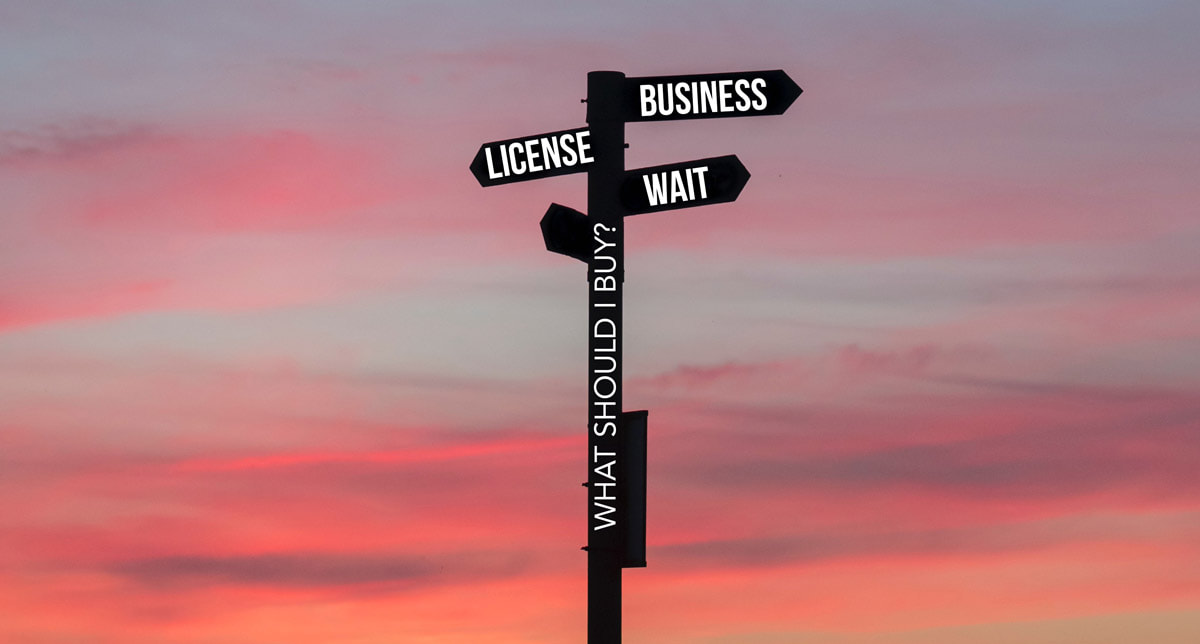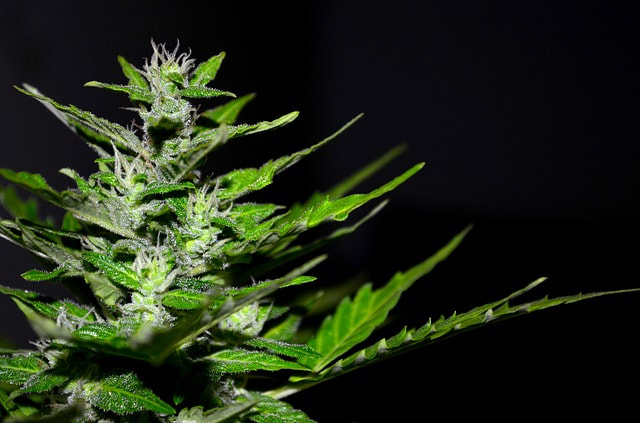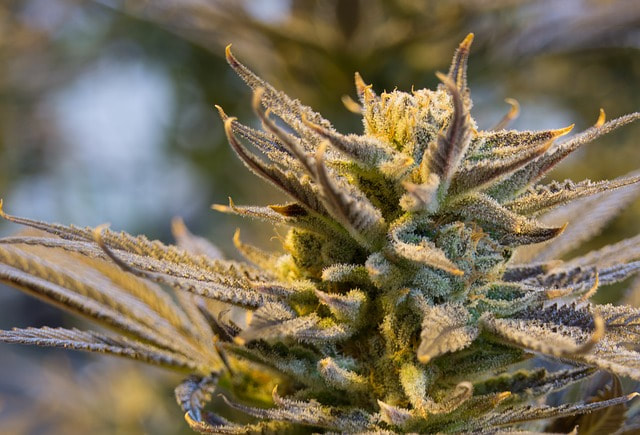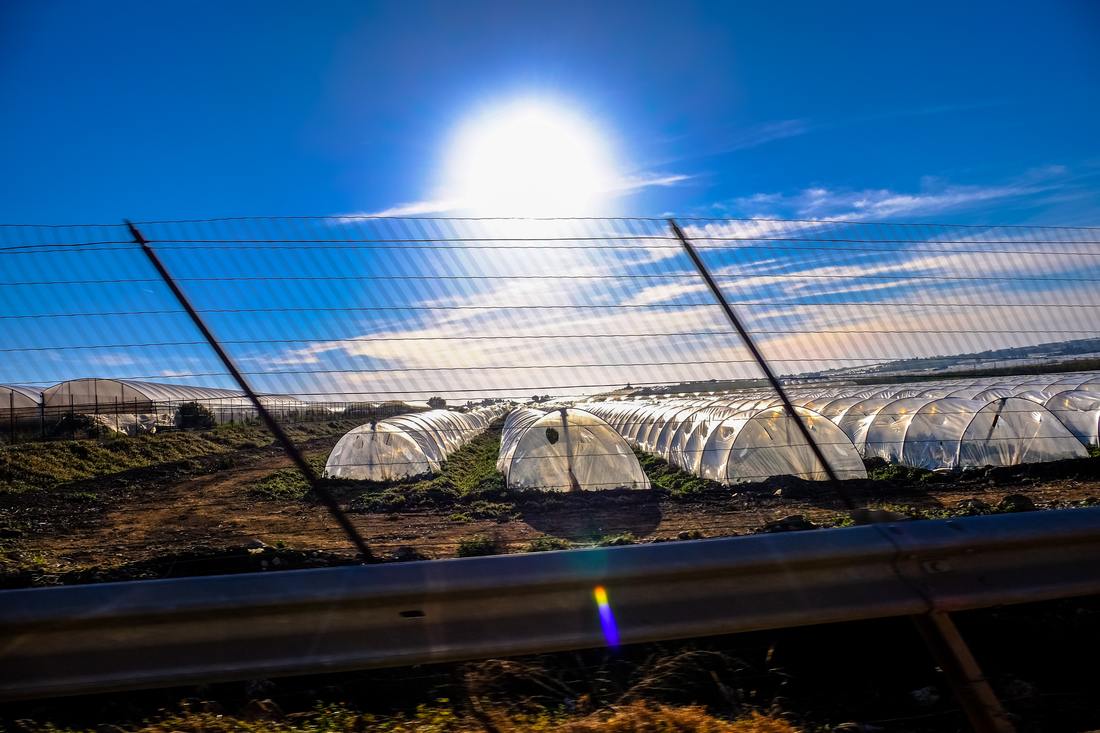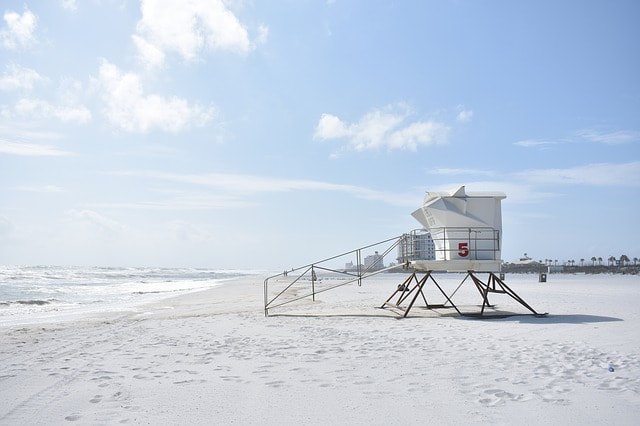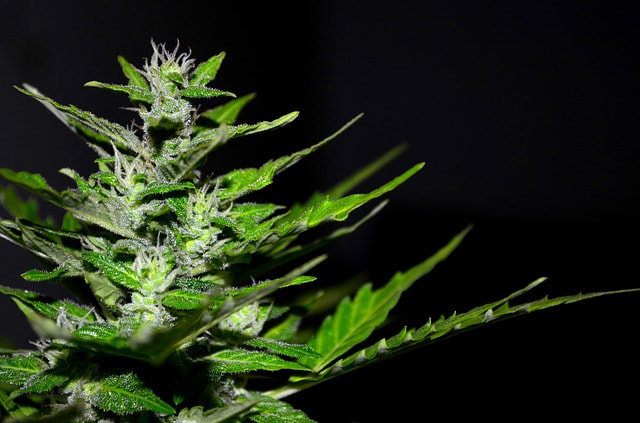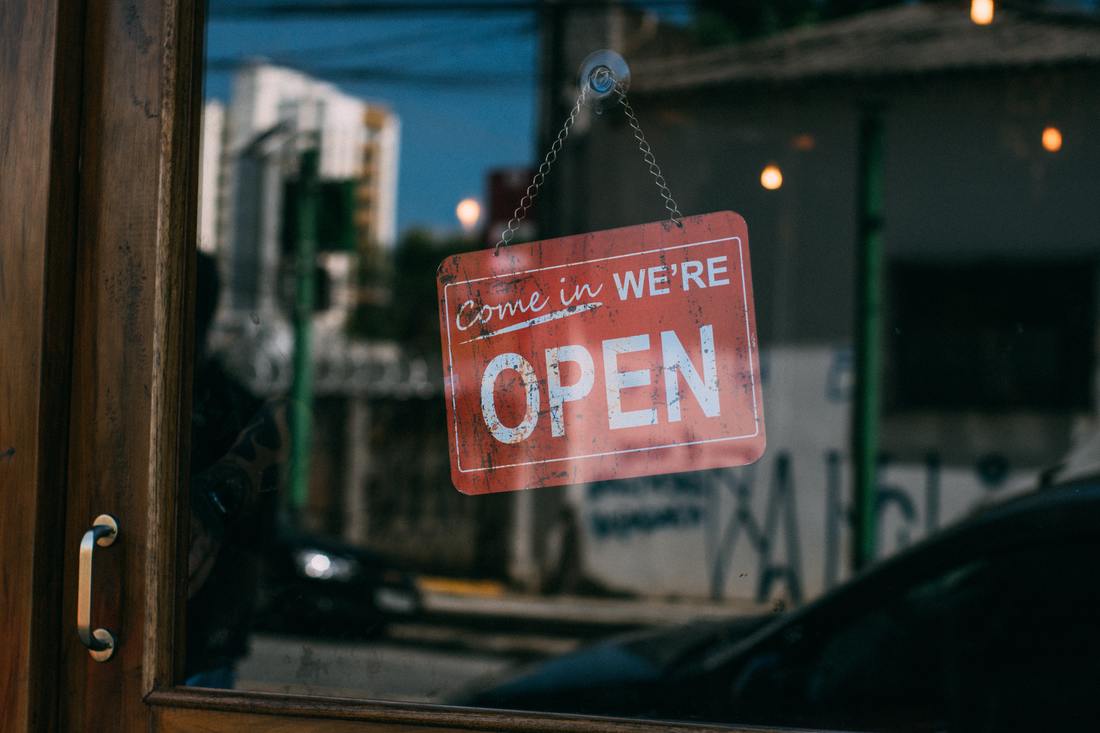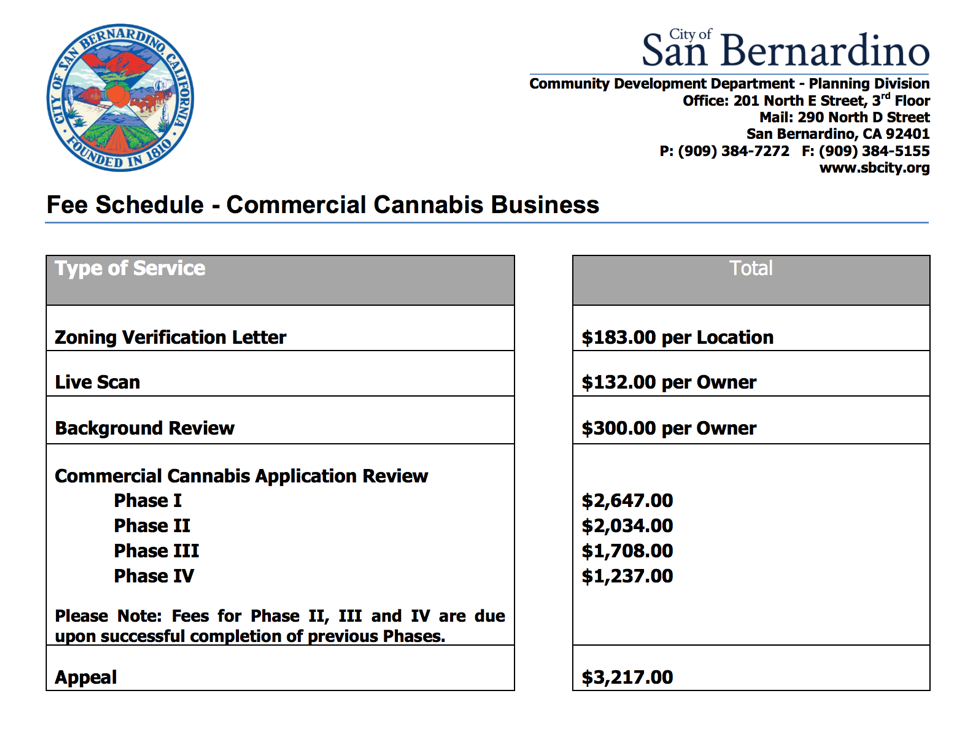|
There are tons of articles out there detailing the cannabis licensing processes, the high valuations of cannabis companies, and the astronomical costs associated with getting started in this industry. As an entrepreneur new to this space, you may read blog posts and see videos about how licenses are probably one of the most expensive costs of the business.
Some even call cannabis business licenses the golden ticket to the industry. But in most cases, it couldn’t be further from the truth. Our experts field plenty of phone calls from clients and prospective clients who are very uninformed about the value of their license – and sometimes, even about the value of their business. The key issue is that most people don’t know the difference between owning a license and owning an actual cannabis business operating with positive cash flow. The difference between these two assets could not be bigger. The failure rate of new cannabis companies is high, even in a country where 20% of all small businesses fail in their first year. We’ve seen an ongoing trend of entrepreneurs shelling out a ton of money to get started in this space, only to bleed cash and ultimately close their doors. In this post, we’ll cover some considerations you should make before you spend big on a cannabis license or a cannabis business, and explain what the difference is between buying a license and buying an actual business. Consider this post a healthy dose of reality: by the end, you may want to buy into a laundromat business instead of diving headfirst into cannabis. Is Your Market Ready for New Entrants?
The first question you must ask before investing in either a cannabis license or a cannabis business is whether or not the market is ready. Consider the maturity of the medical cannabis market that you are getting into. That will weigh heavily into whether or not you even want to try to compete for a license or buy a business.
The oldest medical cannabis market in the country is California. Despite the fact that this market has been around for 20 years, there are still plenty of quirks that can make doing business difficult. For instance, a long-existing medical cannabis market usually means an equally thriving black market exists. This means that the local cannabis businesses, both legal and illegal, have been building relationships with their customers and cementing their place in the market for years. The longer that a medical cannabis market has been around, the smaller the incremental bump will in sales be when your state allows recreational cannabis. Case-in-point: when California opened up the market for recreational cannabis, there was no flood of new customers flocking to licensed shops. There was a relatively small new group of consumers (an incremental bump in demand), and the black market still is thriving nearly three years later. Bottom line: the younger the medical cannabis market, the better the business opportunity. Buy a cannabis license, or buy a cannabis business?
If you believe the market is ready for your investment, then the next step is to decide whether you will pay for a cannabis business license, or buy an existing business. We want to preface this with one thing...there is no answer to this question. It depends on many factors including your risk tolerance, your experience, growth/exit plans and much more!
A license, in most cases, is just a checkbox; a green light by the powers that be, authorizing you to open a business. A license says you can go ahead with the next steps to starting a cannabis business, but it doesn’t ensure that you win customers or make a profit. The process of getting a license is incredibly costly and there is no guarantee that you will actually get it. Once you do, the clock starts ticking for you to build a valuable business. There are two good reasons to buy a cannabis license:
When looking for licenses to purchase, especially retail licenses, make sure that the market makes sense and you’re not just getting overzealous about having a cannabis license. Make sure this license will unlock some type of financial benefit for your current business. Cannabis cultivators, manufacturers, and distributors can be more flexible because you can drive to get to your clients, so you need to make sure you look at the financials behind operating the business and find the cheapest cost of doing business. On the other hand, businesses are sets of processes, people, and property that create value. If you’re looking to buy a business, the most valuable ones are obviously those that are already profitable. Look for cannabis companies that have strong SOPs, amazing staff and repeatable success built-in. This goes for retail businesses and all other cannabis verticals. If you don’t look beyond profit, you risk taking on tons of liability with a company that doesn’t have the right compliance measures and documentation procedures in place. And one last point on buying a business is that you MUST have self-awareness as to whether or not you can actually operate a business. There is a significant difference between being an owner and an operator. Just because you own a business doesn’t mean that you will be able to run it well. Operators have a multi-disciplinary skill set that allows them to handle the many facets of running a business from HR, to finance, to supply chain and everything else that comes with it. This is where the power of having a team is important. If you know you are not an operator then you have two options:
The “Green Rush” Myth
The media loves to write headlines about the so-called “green rush.” The green rush refers to the spread of legal recreational cannabis across the US, alluding to the Gold Rush of the 1800s and the money-making potential of this industry.
In reality, the green rush is mostly hype. It’s a storyline pushed by the media that’s become ingrained in cannabis lore, only to be proven wrong at every turn. From our experience, don’t let these news stories or crazy high valuations of public cannabis companies trick you into thinking that cannabis is going to make you rich. Most of the time, it won’t. Once you look at real numbers and the amount of added complexity from working in this highly-regulated industry, you’ll see that making it in cannabis isn’t as simple as digging for gold. Tips for getting started in the cannabis industry
If you’re still considering investing in the cannabis market, then we strongly recommend making your decision as rationally as possible. Do your research, think about the cash expenditure required, and calculate how much you stand to earn on that cash. This is above all a financial decision, not an emotional one.
Before you buy a cannabis business, do a very thorough analysis of the financials and the opportunity that you’re buying into. Don’t let the green rush narrative cloud your judgment. You are making a financial decision. Ask yourself, what will this investment yield? In most instances, businesses are a more valuable investment opportunity than licenses, especially if they are break-even or profitable, have an aggressive tax strategy and have a stable set of clients. Budgeting for Your Investment
Now that you know the difference between the value of a license and an operating business, think about your budget.
If you have less than $100,000 in cash, you’re going to have an extremely hard time getting directly into the licensed cannabis business as a sole owner. The only market that you could reasonably get into with a budget of that size is in Oklahoma. At this time, this state has a much lower cost for licensing. The cost of doing business in Oklahoma is also lower. However, you need to be an Oklahoman resident for two years to get approved. If you’re not an OK resident, you may want to find partners to pool funds together. Buy into part of a business or create an ancillary business that helps cannabis businesses succeed. For example, can you get into the waste removal business, set up security cameras, or start an electrical or construction firm that specializes in cannabis cultivation operations. If your budget is around $200,000-500,000, you’re in the range of being able to take over and turnaround a struggling cannabis business. Recognize that just because someone owns a cannabis business now, doesn’t mean that they are good at running it. There are many great opportunities out there to take a business and run it profitably. Early cannabis operators were excited, got into the industry and really have no idea how to build a business to profitability. Their inexperience is now your opportunity to get into the market. At this level of investment, we don’t recommend starting from zero and going through the entire licensing process, paying rent that entire time. If you do get approved, you will need to build out a business facility, stock it and then have enough operating capital to run it – and that’s a big IF. If your budget is in the $500k-$1.5MM range, then you have many more options. Consider buying an existing business and using that cash flow to finance the rest of your enterprise. It may need a bit of a turnaround, but that cash can float the rest of your business. When buying a business (and sellers, pay attention) you need to make sure that the valuation that you’re buying the business at is reasonable. Many operators think that their business is worth more than five times their existing revenue. The green rush causes some owners to over-value their business at a multi-million dollar price tag, but if there isn’t any bite to back up that bark, then the business isn’t worth much. Check out our M&A videos/posts for more info on how to value a business. If you need help with evaluating your deals and bringing financial sense to your next M&A prospect, then please reach out to us today. Each week, our experts get lots of questions about California’s seller’s permit. How do you get one? Who needs one? What does the application ask for? Is it separate from every other permit and license? There seems to be a lot of confusion out there surrounding the seller’s permit, which is required not just for cannabis operators. With this guide, we hope to answer many of these questions and provide some insight into how the CDTFA evaluates the cannabis seller’s permit.
California Seller’s Permit: Required Information If you are doing business in California and intend to sell or lease tangible personal property subject to sales tax sold at retail, you are required to have a seller's permit. Likewise, you have to prominently display your permit at your place of business. Basically, anyone working in the cannabis market in California needs a seller’s permit. For a California state seller’s permit, you must apply online with the following details:
As a cannabis operator, you also need to submit:
If you have a business partner or if your cannabis operation is managed by corporate officers or limited liability company managers or partners, you will be asked to include some of their information in addition to your own. The seller’s permit is different from your cannabis tax permit or cannabis business license. If you are a distributor of cannabis and cannabis products, you must obtain a SEPARATE cannabis tax permit in addition to your seller’s permit. You can apply for your seller’s permit on an open basis. There is no deadline or application window to apply for your seller’s permit. The online system guides you through the whole process and lets you know what documents you need to submit. There are also a handful of field offices you can visit where the CDTFA will walk you through the application process. If you go in-person, you get your permit right when you finish applying. Unlike the cannabis licenses, you are not being ranked against other cannabis companies. However, you must apply for a cannabis business permit before attaining your seller’s permit. The seller’s permit application will ask you for a cannabis license number. Start with your state and local licenses before spending the time and resources to obtain your seller’s permit. For help with any licensing matter, get in touch with our experts. Last week, we covered some key findings for cultivators, distributors, and retailers released in the California Cannabis Advisory Committee 2018 Annual Report. The CAC provides recommendations o the California’s cannabis licensing authorities, and helps set forth priorities when it comes to the standards and regulations of the cannabis market.
Today, we’ll outline what the CAC recommended for Manufacturers, Licensing Applications, Microbusiness and Enforcement. It’s important to keep an eye on this committee, as they can have direct impact on the regulatory environment for your cannabis operation. Here’s what the committee accomplished last year. CAC Subcommittee for Manufacturers Last year, the Advisory Council’s Subcommittee on Manufacturers made a total of four recommendations. The licensing authorities moved forward to implement two of these recommendations, partially implemented a third, and declined to implement one.
Please note that the CDPH website has been updated to include more than 20 FAQs on packaging and labeling as well as some additional checklists to come. The CDPH intends to release a revised set of checklists, updated FAQs and an illustrative guide after adoption of the permanent regulations.
CAC Subcommittee for Licensing Applications This subcommittee specifically addressed the risk of large, consolidated cannabis operators dominating California’s nascent cannabis market. The Subcommittee for Licensing Applications was primarily concerned with adding transparency to the licensing process; offering financial relief and lowering barriers to entry for new applicants; encouraging marketing stability; and protecting the health and safety of workers in the cannabis industry. As a result, the Subcommittee had four recommendations which were adopted by the committee, of which two were implemented, one was partially implemented, and not implemented one.
CAC Subcommittee for Microbusinesses Cannabis microbusinesses are operators that meet a minimum of three out of four of these allowed commercial cannabis activities:
The Subcommittee for Microbusiness offered four recommendations, of which one was partially implemented and three were not implemented.
CAC Subcommittee on Enforcement Last, but not least, the Subcommittee on Enforcement is dedicated to improving public safety and protecting the business interests of the cannabis operator. They strive to “ensure that there is a balance between allowing for the feasible operation of cannabis businesses while deterring illegal and criminal activities.” The Subcommittee adopted five recommendations; in response, the licensing authorities implemented two, partially implemented one, and declined to implement two.
If you have any questions about the CAC or their policy recommendations, please get in touch with our experts. You can also read the full 2018 Annual Report, which covers every Subcommittee statement, to see more about how the regulations in California continue to evolve. Carson City, California has once again opened the application window for commercial cannabis business permits. Applications are due on February 14, 2019 at 5PM.
Carson City uses a slightly different permit process than many other California cities. The City intends to issue four licenses for “cannabis centers,” which could hold multiple licenses for cannabis cultivation, manufacturing, testing and distribution. A cannabis center may host multiple cannabis operators – and when you prepare your application you must include all cannabis operators in one “parcel,” or permit application. Each operator must also submit separate supplemental application materials depending on their type of cannabis operation (distribution, testing, cultivation, etc.). Given all the moving parts involved in gathering your application materials (which are extensive), filling out the supplemental forms, and making sure all your operators are in compliance with the City’s regulations, we suggest working with an outside firm to give your application the best chance of approval. Don’t be fooled: February 14 will be here before you know it! Here’s what’s new in the Carson City, California cannabis center permit application. Carson City Cannabis Licensing Process Carson City’s main cannabis licensing application can be found here. The city has also issued a set of application instructions that you can refer to here. The instructions provide a sample breakdown of what your application should include, as well as some scoring guidelines which may prove helpful in putting together a thorough submission. In addition to the main application, cannabis operators must submit separate supplemental material depending on their role in the cannabis industry:
Applicants must also submit the following additional forms:
Main Cannabis Application There are 13 suggested sections the City will evaluate in the main cannabis application. The city has assigned a maximum possible points they will use to score each section. This should help guide you in putting together the strongest possible submission. Read the main application and supplemental materials carefully to be sure you are meeting the requirements under each section. Section 1: Application and Documents
Section 2: Operation Plan (400 pts)
Section 3: Security Plan (300 pts)
Section 4: Health and Safety Plan (300 pts)
Section 5: Impact on the Environment (150 pts) The application should state and describe the extent to which the Cannabis Business will engage in “green” business practices. Describe practices designed with a focus towards renewable energy techniques, water and power conservation measures and environmentally responsible waste management. Section 6: Neighborhood Compatibility (200 pts) The application should state and describe the extent to which the Cannabis Business will be managed to avoid becoming a nuisance or creating negative impacts on its neighbors and the surrounding community. Describe measures designed to create good neighbor policies, public relations techniques and nuisance mitigation. Section 7: Employment Opportunities for City of Carson Residents (150 pts) The application should state and describe the extent to which the Cannabis Business will be a locally managed enterprise whose owners and/or employees reside within the Carson and/or South Bay area. Section 8: Economic Benefits (150 pts) The application should state and describe the extent to which the Cannabis Business will be a direct and/or indirect economic benefit to the City of Carson. Section 9: Community Benefits (150 pts) The application should state and describe the extent to which the Cannabis Business seeks to be an integral part of the City of Carson. Describe how the Cannabis Business proposes to develop and maintain community engagement through programs and economic incentives. For help on this section, check out our recent guide to strengthening your community benefits section. Section 10: Experience of the Operators, Managers, and Employees (200 pts) The application should include information concerning any special business or professional qualification or licenses of Owners that would add to the number or quality of services that the business would provide, especially (if applicable) in areas related to medicinal cannabis. Describe background of operators, managers and employees, as well as, if applicable, industry specific training and experience. Section 11: Capitalization of the Business (100 pts)
Section 12: Educational Plans (100 pts) The application should state and describe the extent to which the Cannabis Business will develop and maintain community focused educational opportunities, possibly including general health risks associated with cannabis use, youth addiction and drug prevention programs, and measures to reduce risks associated with minors. Section 13: Promotion of Equitable Business Ownership and Employment Opportunities (100 pts) The application should include a proposed plan to develop a social equity program designed to ensure the Cannabis Business is diverse and inclusive. Describe how the Cannabis Business will engage in proactive efforts to hire partners and employees from marginalized communities and /or rehabilitated persons. This is obviously a ton of information to compile – in addition to the supplemental application material found in Appendix A – so start this process sooner rather than later! Carson City Application Review and Assessment Once you submit your application, the Carson City staff will have a 90 day review period. The first review is to determine that your application complies with the Carson Municipal Code. If you are found compliant, your application will move to the Cannabis Permit Committee. If your application is not compliant, within 60 days you will receive notice that your application is missing some required information. You may be given 30 days to resubmit; if your resubmission continues to be non-compliant, or you fail to meet the new 30 day deadline, your application will be “deemed abandoned” and you may start over. Then, a Cannabis Permit Committee review the application for merit (based on the scoring outlined above). The Merit List is submitted to the City Council, who will then review the recommendations at a public meeting. The City Council makes the decision on whether to issue a Cannabis Center a permit based on Merit List criteria. If you do receive a permit, then your cannabis operation will enter a Development Agreement with the city planning council. Carson City Cannabis Application Fees The initial application deposit is $20,000. This is down from last year’s initial deposit of $25,000. Need help preparing your application? Get advice from our licensing and finance experts who have helped dozens of cannabis operators in California. What does it take to get your California cannabis cultivation license? In this extremely competitive licensing environment, knowing the full process for getting a cannabis cultivation license is important. Here’s a summary of the licensing requirements for cultivation. Who issues the annual state cultivation licenses? There are three distinct agencies involved in issuing the California annual cultivation license. They are:
Each of these agencies oversees various aspects necessary for the issuance of an annual license. CalCannabis actually grants the license, but there are essential requirements an applicant needs to secure from the other two agencies to submit a complete application with the Department of Food and Agriculture.
.Processor: Conducts only trimming, drying, curing, grading, or packaging of cannabis and non-manufactured cannabis products
Nursery: No size limit defined in statute (no canopy. *Large licenses will not be issued until 2023. Note that greenhouses with dirt floors are considered Outdoor Facilities. How do you apply for a license? You may submit an application for a cultivation license at any time. Here are some of the general requirements for the California cultivation license application:
Other things you may need to submit include:
Applicants must submit to the Department of Fish and Wildlife any final lake or streambed alteration agreement or a written verification from CDFW that an agreement is not required. When you are granted a license, you will be required to train your team to use the California Cannabis Track and Trace System within 10 days of receiving your license. Licensees are also required to order UID tags from the Department of Food and Agriculture within five days of completing their CCTT training. For more resources and help applying for the cultivation license, read this guide and get in touch with our experts. The City of Commerce just released its Commercial Cannabis Permit Application and held its Prospective Operator Workshop. If you weren’t able to attend, here is a City of Commerce Guide to Cannabis Licensing.
License Types The first thing you need to consider, if you haven’t already, is what kind of commercial cannabis business license you will apply for. Below is a list of the licenses the City will be issuing: - Cultivation - Manufacturing - Distribution - Non-Storefront Retail Delivery - Microbusiness - Testing Deadlines and Fees Once you’ve decided on what type of commercial cannabis business license to apply for, the other important things to remember are the deadlines and fees. Deadlines Applications can only be submitted in-person and by appointment. You can request an application submission appointment by emailing ccp@ci.commerce.ca.us. The window for application submission is from October 15-26, with the last day for application submission appointment requests on October 22. Fees There is a non-refundable fee of $13,025.00 application fee. If you are considering applying for a microbusiness license, the City is requiring that applicants pay an application fee for each type of activity. According to state regulations, microbusiness can have up to four (4) specified license types and a minimum of three (3). That being the case, you will have to pay at least $39,075.00 for a microbusiness license with three (3) licensed activities. Other fees that will need to be paid to the City that are refundable are:
Payments will be received in the form of Cashier’s Checks or Money Orders, or business checks that must be made out to the City of Commerce. General Owner Information Any type of license application will require owner information such as name, contact details, SSN or EIN, percentage of ownership, and other general information that should be gathered together for easy reference. There is also a brief questionnaire section that must be filled out regarding convictions, prior cannabis license revocations, etc. You will also be required to initial statements declaring the nature of your cannabis business operations. Qualifications and Experience The application includes a portion where the company’s members, who have had experience in the industry, and any other relevant qualifications must be listed. It is important to showcase the strengths of each team member who will provide a sound, professional, and compliant contribution to the success of the cannabis business’ operations. Premises This section presents itself as a checklist of requirements you will need to put together and submit as part of the application. Known Premises The Known Premises portion refers to property that is readily available and accessible. It requires highly technical documentation that should be done by professionals, such as an architect and a certified civil engineer. Unknown Premises Unknown Premises refers to a proposed property that has yet to be acquired, either through a lease or purchase. Since the location is not yet finalized, this section requires information about how you will go about securing it including, finances, feasibility, and your commitment to the City. Operating Procedures This entire section focuses on the facility’s operating procedures that cover the following: - Transportation - Inventory - Non-Laboratory Quality Control - Security - Testing - Delivery - Point-of-Sale and Track and Trace - Cultivation Methods - Manufacturing - Distribution Be sure to address each requirement listed on the application for each type of license type you are applying for. Failure to do so could disqualify your application. Business Plan Every business needs a business plan- and commercial cannabis businesses are no different. Part of the City’s application requires that a business plan specifically address the day-to-day operations, compliance with local and state laws, a schedule that includes a narrative of the timeline for all proposed construction, a budget, proof of capitalization, and a pro forma for at least three (3) years of operation. Proposed Community Benefits Program Plan Every locality wants to know that your cannabis business will help improve the surrounding neighborhood and community. In this application, the City may require your company to engage in designated programs, provide funding to specific initiatives beyond the designated City amount, staffing plan, labor peace agreement, and maybe even take part in a Mixed-Use Development Bonus that will incubate a local small business, co-locate with another small, local business, or propose other mixed-use developments. Disclosure of Financial Interests You will need to disclose and provide all the information associated with groups or individuals with a financial interest in the company. These groups or individuals could be: - Financial institutions whose interest constitutes a loan - Those whose interest is through a diversified mutual fund, blind trust, or similar interest - Those whose interest is through a lien, security interest or property encumbrance - Those whose share of the company stock is less than 5% Labor Peace Agreement If your company will have more than 20 employees, you will need to enter into a labor peace agreement with the United Food and Commercial Workers Union (UCFW). This is done to ensure that all employees receive livable wages and helps to improve the quality of their lives. Seller’s Permit You will need to get a Seller’s Permit from the California Department of Tax and Fee Administration. This can be done online or in-person at any of their field offices. Registering in-person at a field office provides for same day permit issuance. Limited Waiver of Sovereign Immunity You will have to waive any sovereign immunity defense you or your company may have in the event that a federally recognized tribe asserts their immunity over the company and its operations. Development Agreement Proposal You will need to review and sign the provided Development Agreement Proposal by the City. If you feel that you disagree and/or would like to change anything, you may redline the proposal by striking through or underlining sensitive language. You will also need to prepare a narrative identifying at least five (5) topics from the agreement proposal that you propose distinguishes your application from the rest. Additional Information You may provide additional relevant information about your or your team’s involvement in the City- either as a tenant, business owner, or resident. You may include the length of time, and the total estimated contribution to the City via taxes and fees. Provide a signed Cannabis FAQ Fact Sheet Acknowledgement Form with the application. Failure to do so could disqualify your application. There is an Environmental Data Form and Noticing Form that must be submitted in the event that there is a need for an Environmental Impact Report. Background Check Authorization Don’t forget to include your Background LiveScan Authorization when submitting your application. Each owner will need to provide a signed and completed form. Last but not the least, don’t forget to sign and date the actual application form. Getting all these documents together will be tedious and the smaller details may be overlooked. The best way to ensure that everything is done properly and efficiently could be by engaging a team of professionals to help you through this process. If you want to get some more information about the licensing process and how a professional consultant can help you get your license, contact a team member today! The north side of California seems to be on a roll when it comes to accepting adult-use cannabis, and we proudly welcome Union City back on our list of cities now accepting commercial cannabis applications.
Union City officially re-opened their cannabis application window on Friday, August 16, so you can officially apply NOW. Union City is awarding the follow cannabis permits:
Union City is giving preference to businesses who are vertically integrated, aka any location that will have two or more uses. In addition, they are also accepting applications from applicants who submitted prior but were not awarded a permit. The city will close their application window on December 7, 2018. Today, we will discuss the application process for Union City and what you need to do to ensure you have the best chance of being awarded a cannabis permit. There are a few documents that Union City has prepared to provide you with the most up to date information about the cannabis application process. It is suggested you read these before filling in your application.
Union City Cannabis Application Submission All applications must be submitted online via this website. One of the perks of an online application is the ability to complete just a small portion, save it and then complete the rest at a later date. You will also be required to submit about 23 different attachments in a PDF format. These will include:
Once the Planning Manager states that the location is in the appropriate district, you can submit the zoning application to the office at 34009 Alvarado Niles Road in Union City. Once submitted, and your fee is paid, you should be expected to receive your final Zoning Verification Letter within 10 days. This letter is required to be submitted online with your application. You can find a zoning map here. Cultivation, distribution, manufacturing, testing and medicinal retail uses are able to locate within the ML (light industrial) or MS (special industrial) districts. Keep in mind a cannabis business must be 100 feet from any youth businesses. Union City may provide some exceptions based on your business plan, so if you’d like to be within 100 feet of a youth business you must explain the reasoning clearly within the application.
You will also have to submit personal information for each principal which will include:
Important Document Details As you upload these documents, it’s important to note a few details.
Union City Cannabis Application Fees Each city has different protocols for application fees. Union City prefers Cashier’s Checks or Credit Cards. They will not accept cash or personal checks. Please note there is a 2.25% fee applied to credit card payments over $2,500. The application fees are:
Applicants are also encouraged to attend a city cannabis meeting on Wednesday, September 19 at 1:30pm in City Council Chambers. This will be the only and primary opportunity to discuss any application or cannabis related questions with the city staff. If you have further questions about obtaining a cannabis permit in Union City, GreenGrowth CPAs is happy to help you walk through the process to ensure your best chances of opening a successful cannabis business. As we covered in previous posts, finding properly-zoned real estate is one of the most important - and difficult - parts of starting a cannabis business in California. The real estate market in California is competitive already, and so-called “green zone” regulations severely restrict where cannabis businesses are allowed to operate.
Nevertheless, it’s imperative that you find real estate for your business before the city or county application window opens. Competition is simply too fierce to wait until the city announces they are ready to start approving business applications. Plan ahead to find cannabis-ready property with this quick guide on California’s cannabis zoning laws. California’s Cannabis Zoning Laws California state regulation SB94 allows the 482 cities and 58 counties in California to regulate land use and zoning in relation to cannabis within their jurisdictions. What this means is that cannabis zoning laws not only vary by location, but also by the type of business activity. For example, cannabis dispensaries will abide by different cannabis zoning laws than cultivators or manufacturers. Note that cities or counties with no legal cannabis activity will not provide zoning information related to cannabis businesses. As far as growing cannabis, it can be tricky to discern regulations by city and state. Research shows that a slight majority of cities have banned outdoor cannabis gardens, while others have specific home-grow permits that may relate to smaller cannabis businesses as well. To find a specific zoning law in your area, the Orange County Register has compiled a database of cannabis zoning laws by city and county (last updated June, 2018). Common Cannabis Zoning Laws Each city and county customizes their cannabis zoning laws. However, there are a few commonalities that our experts tend to see in many zoning policies. If you’re seeking property, here are some things to keep in mind:
Green zone regulations may not be announced if a city hasn’t opened their cannabis business applications yet. Regardless, it’s important to stay informed about the city’s ordinances and available commercial property. When the applications do open, be prepared by contacting California Cannabis CPAs and asking how we can help. Recently, our experts led a webinar outlining everything you need to know to get your Los Angeles cannabis business license. If you missed it, you can listen to the full webinar on-demand. We covered many topics, including Los Angeles’ cannabis social equity program.
Los Angeles’ cannabis social equity program is a part of the city’s commercial cannabis licensing system. The goal is to give a boost to past victims of cannabis criminalization by offering assistance and benefits to any communities that were unfairly punished by the drug war. Read on for more information on how this program works and how your cannabis business might be able to participate in the program. What is Los Angeles’ Cannabis Social Equity Program? LA’s social equity program has the stated goal of promoting “equitable ownership and employment opportunities in the cannabis industry in order to decrease disparities in life outcomes for marginalized communities and to address the disproportionate impacts of the war on drugs in those communities.” The program intends to offer assistance in the form of funding, physical space, and a separate licensing timeline to any commercial cannabis licensees who meet the program criteria. Some of the program benefits as of July 2018 include:
As you can tell from some of the notes next to the listed benefits, the city is still developing the specific benefits of the cannabis social equity program. Who qualifies for Los Angeles’ Cannabis Social Equity Program? There are three tiers qualifications under which a prospective cannabis business owner might qualify for the social equity program.
Please note that to be eligible for the benefits of the social equity program, you must own at least one third (and for Tier 1, 51%) of the business applying for the license. Even if you do not fall under one of the three tiers, you can qualify for the social equity program. To do so, you can either pay a fee to the city fund or agreeing to provide a small portion of your physical space to help the beneficiaries of the program. How can I apply for Los Angeles’ Cannabis Social Equity Program? If you recall from our webinar, Los Angeles is issuing cannabis business licenses in three phases. Phase 2 of the cannabis licensing program started on August 1 and will remain open for 30 days. During this phase, applicants must qualify under the social equity program. You can currently apply for a Phase 2 license on the Los Angeles City cannabis page. Read this primer for instructions on how to log in to your account and submit an application. Our experts are standing by to help out if you have any questions. For more information on getting your cannabis business license in Los Angeles, check out our webinar or read our three-part guide on cannabis in Los Angeles:
If you have specific questions related to your business, please get in touch with our experts today. This week’s California cannabis updates come to you from Long Beach, Antioch, and the counties of Contra Costa and El Dorado.
Have a question about licensing in one of the cities we discussed today? Contact Green Growth CPAs. The world of commercial cannabis applications is ever changing. Each California city takes it upon themselves to decide why, when and what form of commercial cannabis business they will allow into their jurisdiction. Some cities have hard application deadlines, while others see it as an opportunity to bring in additional revenue and accept applications on an ongoing basis. Palm Springs is one of these cities.
Palm Springs is a California city with a mere 50,000 people but covers almost 100 square miles, making it the 10th largest California city by land area. Palm Springs adopted ordinances in late 2017 that allowed for commercial cannabis activities, and now they are accepting applications with no end date in site. Palm Springs Cannabis Licenses Palm Springs is accepting applications for the following cannabis business activities:
The city approves of both medicinal & adult-use cannabis. Submit a Palm Springs Cannabis Application Palm Springs does a nice job of organizing the application process and detailing the steps in one complete PDF document. You can find that document here. Within the PDF document, you will find each of the following documents that are required for submitting an application. Everything must be completed in order for your application to be fully evaluated. This includes:
The initial filing fee covers the costs of all background checks and fingerprinting. The city will not issue refunds.
Palm Springs is not specific about how many licenses they will issue within each category, but as Green Growth CPA is alerted of further details we will be sure to update this article. Palm Springs isn’t the only California city accepting commercial cannabis applications on an ongoing basis. We will be continuing a series of articles that detail cities with open application deadlines, so stay tuned. Can we help you get started on your application? Give us a shout and ask how we can help. This week: cannabis licensing updates from the California cities of San Rafael, South Lake Tahoe and Pasadena. In addition, San Bernardino’s application deadline is quickly approaching!
The process will be merit-based and all applications will be reviewed by city staff. In addition, if you are a new business you must meet the following requirements.
San Rafael has released a separate page making it easy to verify correct zones and permit fees. Have additional questions about San Rafael? Send us a message and we will happily provide further details.
Further details are expected soon and California Cannabis CPA will be sure to keep you updated as application details are announced. Don’t forget: applications for San Bernardino close in two weeks! Applications must be submitted by June 25 to be considered for cultivation, manufacturing, retail, microbusiness and distribution opportunities. Looking to submit an application for one of these cities, or perhaps a specific license type? We have a database of cities that have open and quickly approaching application deadlines. Contact us today. This week, we have updates from the cities of Jurupa Valley, San Rafael and Goleta. Also, we share a few cities that are accepting applications on an ongoing basis for cannabis cultivation licenses.
In addition, these cities are accepting cannabis cultivation applications on an ongoing basis. While some cities may decide to have hard application deadlines, these cities keep their acceptance windows open ended (for now) for cultivation licenses:
California Cannabis CPA has helped many cannabis businesses with the initial research that goes into finding the right city for your business. Need some assistance with a particular license? Ask how we can help. We hope you had a nice long weekend. This week, we have cannabis updates from the cities of Ojai, San Luis Obispo and Fillmore. Plus: a few cities are accepting cannabis manufacturing applications on an ongoing basis. Not every city has a hard application deadline!
While most of our newsletters focus on upcoming and open cannabis application windows, it’s also important to note that some cities accept applications on an ongoing basis. For example, the following cities accept manufacturing licenses on an ongoing basis:
Looking for some additional guidance on the licensing process? California Cannabis CPA is here to help make sense of it all. Contact us today with your questions and we can get you started. Catch Part 1 and Part 2 of our Los Angeles series before reading the third and final article below.
In November 2016, the people of California voted to approve Proposition 64 for the Adult Use of Marijuana (AUMA). This forever changed the landscape of cannabis in California and opened up a slew of opportunities for cannabis businesses. Los Angeles has been home to the legal medical marijuana market for years. However, it had difficulty monitoring illegal use of medical marijuana. Therefore, the city is taking further actions to ensure their ordinances are crystal clear. A Social Equity program was also created to promote equitable ownership and employment opportunities in the Cannabis industry. Los Angeles has full intentions to issue licenses in the most transparent manner possible. Los Angeles Required Cannabis Licenses A license is needed for the following commercial cannabis activities. A license will be issued as one of two categories – A (Adult) or M (Medical). This information is sited directly from the Los Angeles ordinances, so if you’d like to read it in its entirety, you can do so here.
It’s important to note than an applicant may only hold up to 3 Type 10 or Type 9 licenses.
An applicant is not limited in the number of license applications. However, each cultivated area may only be licensed 1.5 acres per applicant.
Los Angeles Cannabis Application Procedure If you would like to apply for a license is Los Angeles, you need to fill out and file this application for Commercial Cannabis online. Various fees will be required. Candidates will be ineligible if they fall into any of the following categories:
Once you submit a complete application, The Department of Cannabis Regulation (DCR) will require a pre-licensing inspection. The details are outlined in our Rules and Regulations blog (link to our own blog once ready). EMMDs (existing medical marijuana dispensary) are exempt from this inspection. A pre-licensing inspection must be passed before any temporary approvals or licenses may be issued. The Department of Cannabis Regulation (DCR) will mail applicants notice within 10 days of a complete application. They will also inform and mail the owner of the property and any occupants within 500 feet of the business premise. The applicant is also required to hold a hearing, informing the public of the new cannabis business that may be opening within their neighborhood. Issuance of Los Angeles Cannabis Licenses
The Appeals Process If you would like to appeal the DCR’s decision or denial of your license, you must do so 15 days from the mailing date of the DCR’s decision. If not filed within 15 days, the appeal is automatically rejected. Click through for more information on page 14 of this document. Likewise, if you do successfully submit your appeal, the appellate body shall issue its decision within 30 days of the closure of the hearing on the appeal. Unfortunately, if the appellate body does not come to a decision within this time frame it is considered a denial. Other Must-Know Info for Getting a Los Angeles Cannabis License Your license is non-transferrable. The only exception to this is if you submit your case (and there’s been an organizational or ownership. Although this is a detailed post, the city of Los Angeles issued a highly comprehensive document that goes into further detail, so we recommend taking a look if you’d like further detail about any of the above topics. Still looking for some guidance on the licensing process? Let California Cannabis CPA make sense of it all. Contact us today with your questions and we can get you started. Get A Head Start On Part 1 Of San Francisco’s Cannabis Business Permit Application Process5/17/2018
San Francisco recently announced that it will soon be accepting cannabis business permit applications – however, they have not yet announced when the application date will officially open. The city has provided some preliminary application information to get you started, and we recommend you suggest preparing your application now. If you’re not sure where to start, follow this article by reading our guide to the first three steps you should take to start your cannabis business.
San Francisco Cannabis Licensing: Part 1 San Francisco will soon be releasing part 1 of their cannabis business permit application process. On May 7, the City opened office hours to allow for walk-ins and appointments should you have questions. You may schedule a meeting by emailing officeofcannabis@sfgov.org. The office hours are Monday through Friday, 1pm to 5pm, in room 018 located in San Francisco’s City Hall. Who can apply for a San Francisco cannabis permit? During Part 1 of the Cannabis Business Application process, San Francisco has very strict criteria. You may only apply to this round of applications for a cannabis business permit if:
This list was taken directly from San Francisco’s website from their list of accepted criteria. What is San Francisco’s equity program? San Francisco recognizes that the nationwide and state drug policy has traditionally negatively impacted certain communities, causing additional inequality and a heightened level of hardship. Therefore, San Francisco has proposed an equity program that will allow certain neighborhoods, citizens and communities to have access to a cannabis business permit first. Normally, applicants would have to pay a permit fee. However, San Francisco is waiving the $5,000 fee for equity applicants. There are also programs that allow for discounted rent and assistance in running a cannabis business. How to Apply for a San Francisco Cannabis Permit While San Francisco has not issued an application start date quite yet, the city has written a list of the items required so you can get a head start. The city will require items such as background checks for all owners and proof of a secured location zoned for your business. The city will issue the following permits:
It is not yet clear how many of each permit San Francisco will issue. Once the application is available, the Cannabis Office will email the verified applicants with further instructions. When the application is released, prepare to submit a few additional things:
If you have additional questions related to enforcement or the equity program, visit room 362 at City Hall between 9am to 1pm, or call (415) 554-4420. San Francisco’s application process is sure to be competitive. If you’d like to get a head start today, contact California Cannabis CPA to ask how we can help. This week we have updates from San Luis Obispo, Jurupa Valley and a reminder to submit those applications for West Hollywood!
Looking for some guidance on the cities listed or others within California? We have a track record of providing research and cannabis application guidance to our clients quickly and accurately. Contact us today to ask how we can help. Today, we have cannabis licensing updates from San Bernardino, Alameda County, Ojai, Redwood City, and the City of Alameda.
Have questions about any of the above cities? Get in touch with one of our experts. This week we have updates from West Hollywood, San Francisco and Redwood City. Don’t forget: Culver City applications are due this week!
Check back in later this week for advice from our experts on finding real estate for your cannabis business, guidance on CBD products and the cannabis excise tax, and the final part of our Los Angeles regulations series. Now, onto the latest news from around the state:
If you would like additional information, San Francisco will be hosting office hours starting May 7. You may walk in or set up an appointment by emailing officeofcannabis@sfgov.org. The hours are Monday – Friday from 1:00pm – 5:00pm.
If you’d like assistance with any of the following licenses or other cities within California, please contact us today. We have processed many business applications successfully, helping clients enter California’s cannabis market. Just announced: West Hollywood, California is now accepting screening applications for cannabis business licenses through May 31, 2018. West Hollywood has provided a lot of detailed information on how to obtain a license, and here’s what you need to know about the process.
West Hollywood Cannabis Ordinance Back in November of 2017, West Hollywood enacted a Cannabis Ordinance that would allow cannabis businesses to be licensed. According to the West Hollywood Cannabis Business License Screening Application Packet, the following numbers of licenses are to be issued:
West Hollywood Cannabis Application Process West Hollywood will select its applicants based on specific application weighting criteria. By providing the grading criteria up front, the city is challenging applicants to tailor their application to the city’s exact needs. Be sure to take advantage of this knowledge! The first step to getting to the actual application, however, is submitting a screening application (screening applications will be accepted May 2 – May 31). The screening application must include the following:
West Hollywood has also provided a comprehensive application overview as well as an application checklist. If you have additional questions, the city has also provided answers to commonly asked questions. West Hollywood has done a great job providing all the necessary information needed in order to submit a successful screening application. If you would like additional assistance in submitting a successful application, please don’t hesitate to contact California Cannabis CPA. As we’ve seen over the past few months, California cities and municipalities are offering a limited number of business licenses to new cannabis companies. San Bernardino is offering 17 total licenses; Colfax is has four retail permits up for grabs; San Francisco has a waiting list until 2019; and those are only the most recent announcements. Competition is fierce and barriers to enter California’s cannabis industry are high. That’s not to mention the high application fees you’ll pay for no reason if your license application is rejected. What are some things you can do to make your application stand out? Our experts have worked with dozens of successful cannabis licensees, and they’ve seen what can make or break an applicant. Here are their top tips for submitting a strong cannabis business application in California. Read the instructions. Sounds simple, but every application is different: each municipality has their own twist on what it takes to open a business in their city limits. And, with so many potential businesses vying for a small number of permits, you must follow instructions to the letter. Don’t give the review committee an easy excuse to reject your application just for missing some information or failing to meet one of the requirements! Do your due diligence. Our expert’s number one piece of advice is to go above and beyond when it comes to the details. Essentially, you should be thorough in creating your application that if (when!) it is approved, you can pull the trigger and open within a few weeks. This means calling security companies, interior designers, partners, POS vendors, real estate agents, and anyone else who you will need to vet and sign contracts with to get started. Get financial quotes from each of these vendors, and make sure you’re clear about what your start-up costs are. Keep in mind that all these other businesses are what will make your business successful in the long-term. Don’t panic and start signing up partners you will ultimately struggle to work with. This is not only an important part of your application, but an important part of your inevitable success. Get quotes! Be financially realistic. Once you’ve received quotes from partners and third-party vendors, you’ll have a better picture of what it will take for you to actually open your cannabis business. For some, this can be a wake-up call; maybe you need a little more liquid capital than you originally thought. For others, this just verifies that you’re ready to go. Some cities offer bonus points when CPA attests to your financial viability. Submit your financial documents with a seal of approval from a registered accountant to show the city you mean business (literally). Follow security guidelines. Make yourself a viable contender in the eyes of whatever city you’re applying for by following security guidelines. Hire a professional to get your on-site security set up: panic buttons, motion sensors, door alarms, vaults, etc. Keep in mind that you are dealing with quite literally with cash and drugs: protect your business and prevent theft. The city doesn’t want to have to spend extra resources investigating any incidents at your business, and they want to see that you take safety seriously. Compliance also falls under this area of preparation – and applicants frequently get tripped up on compliance issues. The city wants to see if you are going to run an above ground operation. Are you going to pay your taxes, or are you going to run a black market? Show plans for things like inventory control, inventory audits, and commitment to state policies. It’s not enough to make promises: show an action plan including a full inventory sweep every 14 days, for example. Show where on your floor plan you will position cameras, along with the cost per camera and vetted vendor priced out in your business plan. Have a unique business idea. In short: branding! California Cannabis CPA experts caution against falling into the “dumb hippie bakeshop” stereotype – unless, of course, that’s a carefully thought through user experience you’re going for. Put a little work into describing what the inside of your dispensary will look like, what the user experience will be, and what your logo and signage will be. What makes you look professional? What sets you apart from every other cannabis store? Show your role in the community. As we’ve pointed out in the past, many cannabis business applications have a so-called community section – an opportunity for you to share how you will play a role in supporting the local community. California is well aware that cannabis businesses can expect to rake in the cash: and they want to see how you’re going to add value back to society. Our experts suggest that you select specific causes or community functions with local significance. For example, donating 1-2% of your sales to a local animal shelter is better than saying you’ll send some cash to PETA eventually. Give yourself enough time. Our experts recommend giving yourself a full three to four weeks of dedicated time to craft and submit a solid application. That means spending each day drafting contracts, making calls, interviewing potential employees, locating real estate, creating financial projections, and setting up security measures, among other things the application might ask for. Unfortunately, some cities don’t give you the luxury of time: some applications only give you a two week window. In that case, it helps to consult with an expert to prioritize where you can shine on an application. Has your city announced the opening of their permit application process? Get in touch with California Cannabis CPAs to find out more! EDITOR'S NOTE: San Bernardino changed it's cannabis application deadline. The new application deadline is June 25, 2018.
There are several important California city due dates approaching! Here’s a quick round-up of the local and city-wide cannabis application deadlines for the month of May. Many of these cities are limiting the number of cannabis licenses available, so competition will be fierce. To give your business the best chance of being approved, work with one of our experts! Later this week, we’ll also be publishing our exclusive tips for submitting the strongest permit application possible. Culver City Cannabis Application Deadline Culver City applications due by 5:00PM on Wednesday, May 9. The city will issue a limited number of permits in each of the following categories.
To read more about Culver City’s application process, check out our comprehensive summary. Moreno Valley Cannabis Application Deadline Moreno Valley applications are due Friday, May 11. Don’t forget to apply through their online portal. Read more about the application process in our summary. San Bernardino Cannabis Application Deadline San Bernardino applications are due Wednesday, May 23. San Bernardino stated that they will be awarding the following licenses, allowing up to 5 in each of the categories until they are taken. Read more about preparing your application in our summary of the city’s requirements.
Colfax Cannabis Application Deadline Colfax applications are due Monday, June 4. Read our recent blog about the details of applying for their four coveted licenses. Need some help getting organizing and submitting your city’s application information? Contact us today to get started. Later this week, we’ll have the final part of our Los Angeles cannabis series (read Part 1 and Part 2) as well as everything you need to know to submit a strong permit application – and increase your chances for being approved at any of these cities. EDITOR'S NOTE: San Bernardino has changed its cannabis application deadline. The new deadline will be June 25, 2018. Big news: San Bernardino will begin accepting applications for commercial cannabis permits starting April 23, 2018. Here are the full details of the application process to ensure you are fully prepared. Side note: on April 8, the city released specific ordinances regulating smoking in public, personal cultivation and commercial cannabis activity. Find a summary of those ordinances here. San Bernardino Cannabis Application Process On April 23, 2018, San Bernardino will begin accepting license applications for the operation of Commercial Cannabis Businesses (CCB). The city is issuing up to 17 licenses/permits. However, if all 17 licenses are not issued within the first round it is possible the city will open a second round of applications. This is a great opportunity for those who want to get into the cannabis business. Act quickly as the application period will only be open for one month. The deadline for submitting your application is 4:00PM on May 23, 2018. So, where do you start? The city has provided a comprehensive overview of the application procedure guidelines. The actual application can be found here.
The number of each type of commercial cannabis business that shall be permitted to operate in the City shall be established by the Mayor and City Council. At no time shall the total number of permits for all license types exceed one (1) permit per twelve thousand five hundred (12,500) residents of the City as determined by the most recent Population. We will update you as the city responds to our inquiry.
How will San Bernardino evaluate cannabis license applications? Applications are evaluated and ranked based on the following:
If you complete Phase 2 with a score of at least an 80%, you will move on to Phase 3. There will be a maximum of 34 applicants that move on to Phase 3. If you make it to Phase 3, there will be an extensive interview process. You can find the details of the process on page 4 of this document. San Bernardino will begin accepting applications starting April 23, but they close on May 23. With only one month to complete your full application, contact California Cannabis CPA to ensure you have everything in order to nab a commercial cannabis permit! Moreno Valley NOW ACCEPTING Commercial Cannabis Applications for 5 License Types – DUE MAY 11!4/25/2018
It’s an exciting time to be a cannabis business in Moreno Valley! Applications are now open for commercial cannabis business permits.
Moreno Valley Cannabis Business License Application Moreno Valley has set up the full application process through a third party vendor named PlanetBids. To begin the application process, click the link and register as a new vendor. Once you’ve registered, Planetbids will send you a registration email within 24 hours. After you receive this email, the Moreno Valley website suggests searching for bid opportunities and look for invitation number 2018-019. The PlanetBids site houses the full application and lists the supplemental details and forms you will need to submit for your cannabis business license. You have until May 11, 2018 at 4:00pm to submit for a commercial cannabis permit. Don’t even try to submit an application outside of the PlanetBids system: the city will not accept it. Luckily, if you run into technical issues there is a PlanetBids hotline that can be reached at (818) 992-1771. Before you apply, Moreno Valley suggests the following:
Remember, a majority of the documents you’ll need to submit (the application, background application, as well as Moreno Valley’s overview on the city’s limitations) are available through PlanetBids. Details on Applying for a Cannabis License in Moreno Valley
Moreno Valley will evaluate and select candidates based on a points system. Things like location, business plan, safety and security plans, air quality plans & community benefits will be considered. You can review the full details of the point-based system on page six of the Moreno Valley cannabis business application guidelines. In addition, applications must achieve a minimum of 70% score within each individual category. In order to be eligible for the next step in the application process, you must score an overall grade of 80%. It is likely that scoring an 80% will grant you an interview and move you to the next step. Note that a fee of $1,556 will be due prior to the interview and you will be notified (via email) of next steps. As Moreno Valley releases additional information about the process and next steps, we will be sure to update you! Act quickly on this one – applications close May 11, 2018. Need help hitting the ground running with your application? Contact California Cannabis CPA today. Check out this week’s breaking news from Moreno Valley, Gonzales, West Hollywood and Oxnard. Don’t forget: California cannabis tax returns are due in one week!
|

